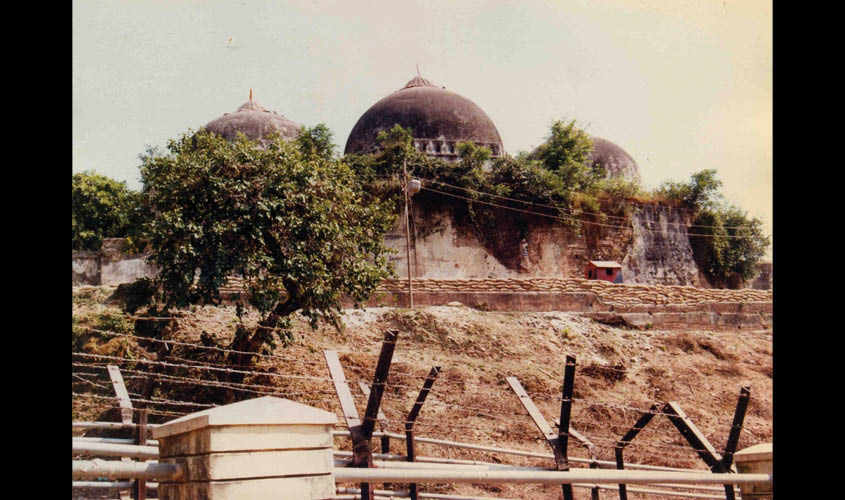While the Supreme Court takes a decision on whether mosques are integral to Islam or not, academicians and religious scholars stand divided on how various interpretations on integrality of mosques can be used in the context of the Ram Janmabhoomi-Babri Masjid case.
S.N. Chishty, heir-apparent, Ajmer Dargah, said, “Mosques are definitely important to Islam. We cannot say that mosques are not integral. But we cannot ignore the law of the land either. It is not right to desecrate a mosque or for that matter any religious shrine. It would be better to have a larger bench to conclude whether every mosque is sacred, keeping in mind the sensitivity of this case.”
Junaid Haris, senior professor of Islamic Studies, Jamia Milia Islamia, said, “Mosques are ideally built on lands that have been given away as waqf. Building a mosque on a waqf land ensures that there are no disputes on the nature and status of that mosque because once a piece of land has been given away as waqf, the status of that land cannot be reversed to use it for any other commercial purpose. This would also prove how and why mosques are integral to Islam.”
Putting the Ram Janmabhoomi-Babri Masjid land dispute in context, Professor Haris further said, “Babri Masjid was built by the incumbent government of the time. The regime allotted the land to build a mosque on it. The land was waqf which is why according to Islamic laws, the status of Babri’s land cannot be transferred or changed. That makes it sacred.”
However, taking a broader point of view, Professor Haris added, “Nonetheless, I am not in favour of dragging the case. The Babri dispute should be resolved by the court and if Muslims do not get a judgment in their favour, they should not react to it; instead, we should accept it peacefully.”
Commenting on a popular suggestion that the Babri Masjid should be rebuilt at a different location than the disputed site, Professor Haris said, “If the court suggests this, it should be definitely accepted by the Muslim community. But it should not be seen as ‘compensation’ made to the Muslim community. Whatever the court decides should be accepted by all the parties involved.”
Commenting on whether mosques are sacred in Islam, Dr Farida Khanam, chairperson of CPS International (Centre for Peace and Spirituality), an organisation founded by Islamic Scholar Maulana Wahiduddin Khan, said, “Only three mosques, namely the ones in Mecca, Madina and the Al-Aqsa Mosque, are considered sacred in Islam. So, there is no need to argue on this point. Mosques can be moved as per the requirement may be, but with full respect and responsibility.”
Quoting an instance mentioned in Quran, the holy book in Islam, Dr Khanam said that though the religion allows a Muslim to offer namaz anywhere, Caliph Umar on his visit to then demarcated Palestine had been considerable towards the existing Churches and Synagogues and offered namaz at a stone’s throw distance from these structures. Dr Khanam explained, “Caliph Umar knew that his followers would want to build a mosque there later to commemorate the place where he offered namaz in Palestine. With the intention to avoid any dispute, he did not choose any such spot that would later lead to a conflict. These structures exist till date in Palestine.”
Some academicians have also pointed out that in the Kingdom of Saudi Arabia, mosques are built and removed as per government

